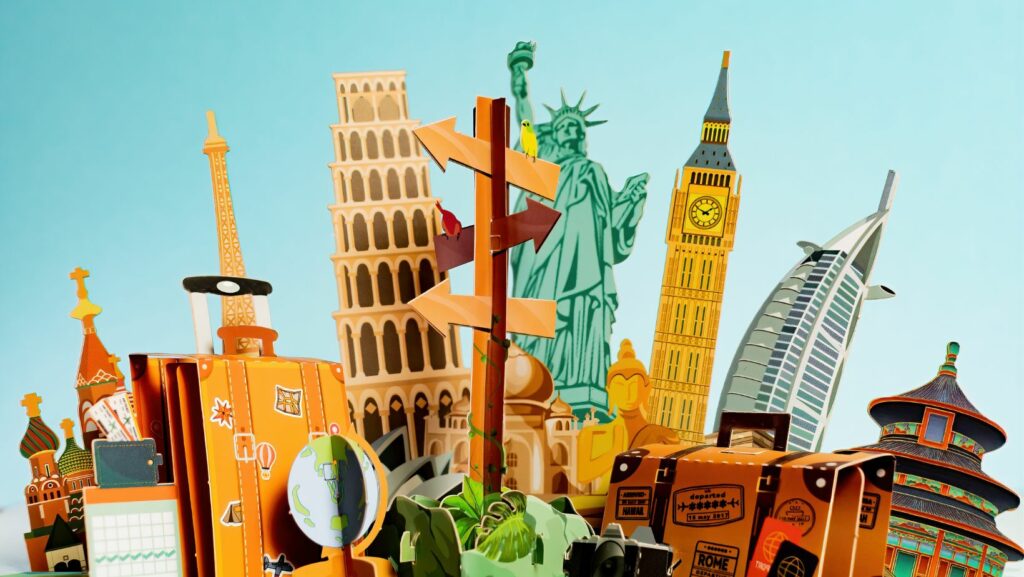Cultural Values
Cultural values are the beliefs, behaviors, and norms that guide a community or society. These values are deeply ingrained and shape how individuals within that culture perceive the world and interact with each other.
Cultural values encompass a wide range of principles that are passed down within a society from generation to generation. These values dictate what is considered important, acceptable, and desirable in that particular culture.
Culture plays a pivotal role in shaping individual values by providing a framework for understanding the world. Through socialization and shared experiences, individuals internalize the cultural values of their community, influencing their beliefs, attitudes, and behaviors.

Exploring the nuances of cultural values across societies is crucial in understanding the diversity and richness of human civilization. By comparing Eastern and Western cultural values, one can appreciate the unique perspectives and traditions that shape these societies.
Eastern and Western cultural values exhibit distinct characteristics that reflect historical, philosophical, and social differences. For instance, Eastern societies often prioritize collectivism, harmony, and respect for authority, emphasizing interdependence and group cohesion. In contrast, Western cultures tend to value individualism, self-expression, and personal achievement, promoting independence and autonomy.
The relentless forces of globalization have both positive and negative repercussions on cultural values worldwide. While globalization fosters cultural exchange, cross-cultural understanding, and economic integration, it also poses a threat to traditional values, leading to cultural homogenization and the dilution of unique heritage. As societies navigate the complexities of globalization, striking a balance between embracing cultural diversity and preserving traditional values becomes paramount.
Cultural Values and Their Influence on Behavior
Cultural values play a pivotal role in shaping societal norms and individual behaviors. Understanding the impact of these values is essential for cohesive communities and harmonious interactions. Embracing diverse cultural values fosters unity and mutual respect, enriching the fabric of society.

In personal relationships, cultural values dictate norms around communication, respect, and family dynamics. For example, in some cultures, hierarchical structures within families determine decision-making processes, while in others, egalitarian principles prevail. Understanding these differences is crucial for fostering meaningful and respectful relationships across diverse cultural backgrounds.
Cultural values significantly influence workplace dynamics, communication styles, and approaches to leadership. For instance, in a collectivist culture, teamwork and cooperation are prioritized, whereas in individualistic societies, self-reliance and personal achievement are emphasized. Recognizing and respecting these differences enhances collaboration and productivity in multicultural work environments.
Preserving Cultural Values in a Changing World
Preserving cultural values poses challenges in the face of globalization, but it is crucial for maintaining societal identity and cohesion. Embracing innovative strategies is essential to sustain these values amidst evolving cultural landscapes.
Adapting to modernization while safeguarding traditional cultural practices can be a delicate balance. The advancement of technology and the influence of global trends often pose threats to the preservation of longstanding traditions.

Economic pressures and changing social dynamics also contribute to the erosion of cultural heritage.
Utilizing digital platforms and social media to share cultural practices can help reach a wider audience and engage the younger generation. Collaborating with educational institutions to integrate cultural programs into curricula fosters appreciation and understanding of traditions. Additionally, organizing cultural festivals and events not only preserves heritage but also promotes cultural exchange and mutual respect.Cultural values play a crucial role in shaping societies and individuals, fostering unity and understanding across diverse communities. Embracing and preserving these values is essential in a rapidly changing world. By adapting to modernization while safeguarding traditions, societies can maintain their unique identities and promote appreciation for cultural heritage. Strategies like leveraging digital platforms and organizing cultural events are key to engaging the younger generation and ensuring the continuity of these values. In a globalized landscape, preserving cultural values is not just about tradition but also about fostering inclusivity and respect for different perspectives. It is through these efforts that societies can thrive and evolve while staying rooted in their rich cultural tapestry.



